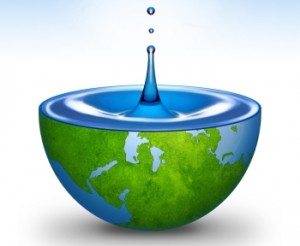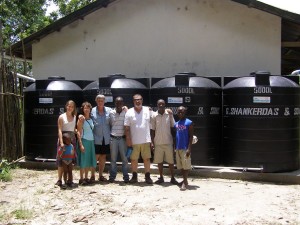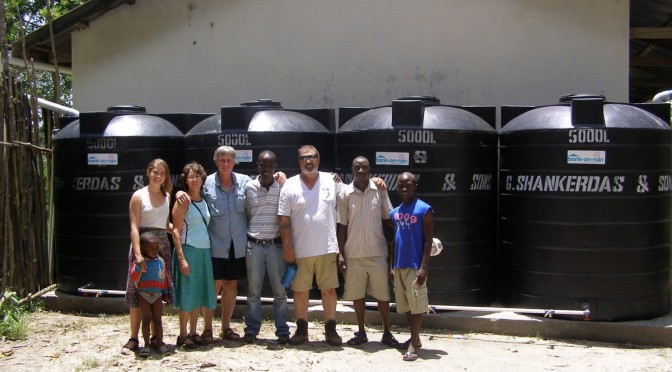 Throughout the world, more than 780 million people have no access to clean drinking water.
Throughout the world, more than 780 million people have no access to clean drinking water.
Here in the United States, we use filtered, disinfected water to flush our toilets, water our lawns, and wash our cars. For most NGOs, the focus for clean drinking water is shallow water wells. The problem, in many regions of the world, is that naturally occurring arsenic is found in these wells; arsenic is harmful to bone development. While fluorides are added in trace amounts to most public water supplies in America, high levels of fluorides can be found in shallow water wells throughout the globe and can cause dental decay. However, the most common threat to drinking water globally is cholera. According to the World Wide Health Organization, there are 3 to 5 million cholera cases with 100,000 to 120,000 deaths per year. It is considered to be endemic in many countries.
 Simple techniques of rainwater collection and natural solar water disinfection can saves lives in developing countries. Rainwater collected from the roof and screened before storage comes in no contact with sewer materials or human feces, leaving only bacterial contaminants to be disinfected. This can be achieved as simply as filling a 1 litter, clear bottle with rainwater and leaving it in direct sunlight for approximately 4 hours or 8 hours in overcast conditions.
Simple techniques of rainwater collection and natural solar water disinfection can saves lives in developing countries. Rainwater collected from the roof and screened before storage comes in no contact with sewer materials or human feces, leaving only bacterial contaminants to be disinfected. This can be achieved as simply as filling a 1 litter, clear bottle with rainwater and leaving it in direct sunlight for approximately 4 hours or 8 hours in overcast conditions.
RainBank’s president is a founding director of Bank on Rain and traveled to Sierra Leone in 2012 and 2013 to teach rainwater catchment and solar disinfection.

